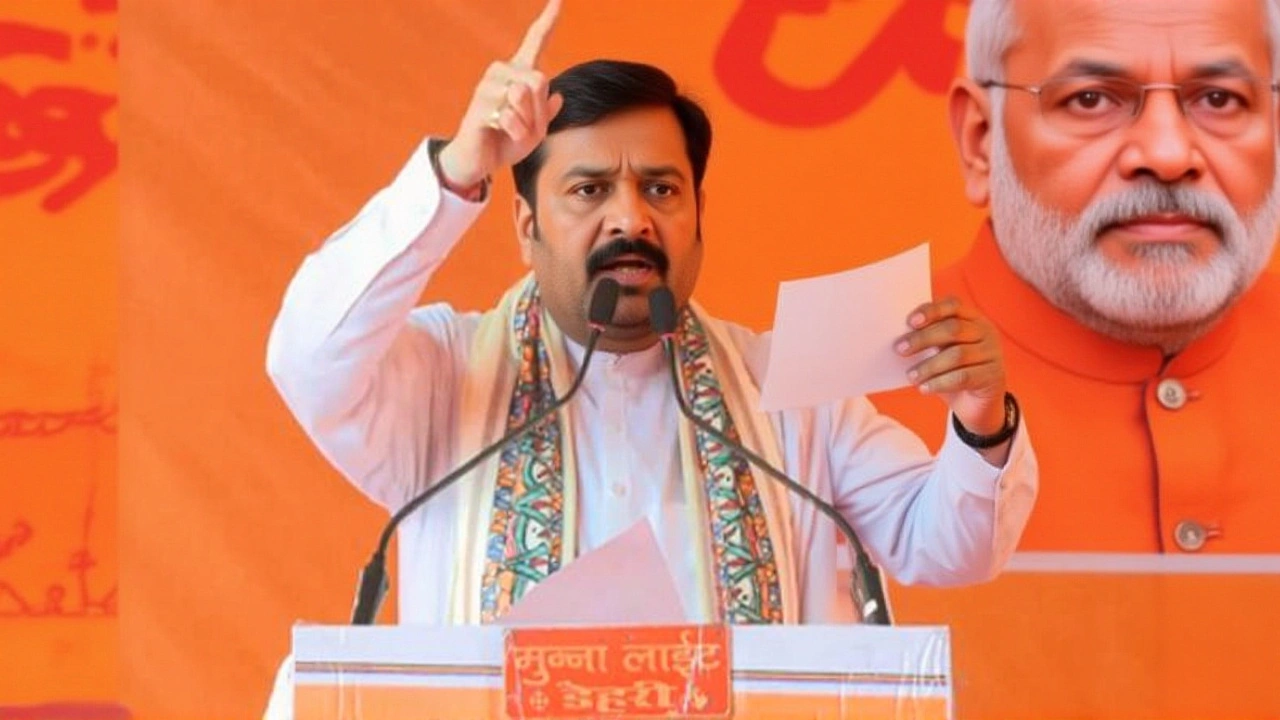Politics
When exploring Politics, the arena where power, policy, and public opinion intersect. Also known as government affairs, it shapes societies worldwide. In the Indian context, politics often means rapid shifts in policy, high‑profile appointments, and bold campaigns that affect millions. Readers who follow the latest developments quickly learn that a single decision—like a minister changing his email provider—can signal a broader economic strategy, stir debate, and even influence voter sentiment. Below we unpack how today’s political headlines tie into bigger ideas such as self‑reliance, digital governance, and the leaders steering the ship.
Swadeshi and the Drive for Indigenous Solutions
Sw Swadeshi, the movement encouraging domestic production and self‑reliance has resurfaced as a core theme in India’s political narrative. The current government frames Swadeshi not just as an economic slogan but as a national security imperative. When the home ministry adopts an Indian‑built email platform, it sends a clear message: critical data should stay on home‑grown servers, and foreign tech reliance is a vulnerability. This mindset influences budgeting, procurement rules, and even educational curricula, pushing schools to teach coding on locally developed tools. The ripple effect reaches small‑business owners who now see a market for Indian SaaS solutions, reinforcing the political promise of “Made in India.”
Another pillar of the Swadeshi agenda is the push for indigenous hardware. Recent parliamentary debates have highlighted the need for Indian‑made smartphones for government officials, mirroring the email switch. Lawmakers argue that an all‑India supply chain—from chips to cloud services—will reduce import costs and keep strategic information under national control. This policy direction illustrates how politics requires both legislative approval and technical execution, creating a feedback loop where political goals shape tech adoption and vice‑versa.
Zoho Mail, an Indian email platform designed for businesses and government bodies entered the political spotlight when Home Minister Amit Shah announced his move from a global provider to the home‑grown service. The decision aligns with the Swadeshi narrative and showcases a concrete example of politics influencing technology choices. By opting for Zoho Mail, the ministry aims to cut subscription fees, protect data sovereignty, and set a precedent for other departments. Analysts estimate that the switch could save the government billions over the next decade, a figure that resonates strongly with voters concerned about fiscal prudence.
The Shah‑Zoho transition also underscores the role of individual leaders in shaping policy outcomes. As a senior cabinet member, Shah’s endorsement carries weight across ministries, encouraging parallel migrations in finance, health, and education. This cascade effect demonstrates how politics requires influential actors to champion reforms, turning abstract ideas like “self‑reliance” into operational reality. It also highlights the importance of digital literacy among political staff, who must evaluate security features, compliance standards, and user experience before committing to a platform.
Beyond email, the broader tech agenda includes the “Digital India” initiative, which aims to connect villages, promote e‑governance, and develop home‑grown software ecosystems. The Swadeshi push feeds directly into this vision, making politics a driver of national tech infrastructure. When ministries adopt local solutions, procurement policies shift, creating a market for Indian startups. This market expansion, in turn, fuels innovation, leading to more robust, secure, and culturally relevant applications—closing the loop between political intent and technological capability.
Understanding these dynamics helps readers see why a seemingly small change—like an email provider swap—can reflect massive political calculations. It’s not just about convenience; it’s about signaling, cost savings, data security, and a national narrative that positions India as an emerging tech leader. The upcoming posts in this collection dive deeper into each facet: the financial impact of the Swadeshi agenda, the technical merits of Zoho Mail, and the broader implications for Indian governance.
Stay tuned as we break down the policies, the players, and the practical outcomes that define today’s Indian politics. Below, you’ll find detailed analyses, expert opinions, and real‑world examples that illustrate how political decisions shape the tech landscape and everyday life across the country.

India’s Home Minister Amit Shah Switches to Zoho Mail, Boosting Swadeshi Push
India's Home Minister Amit Shah moves his official email to Zoho Mail, a key step in Modi's Swadeshi push that could save billions and reshape government tech.